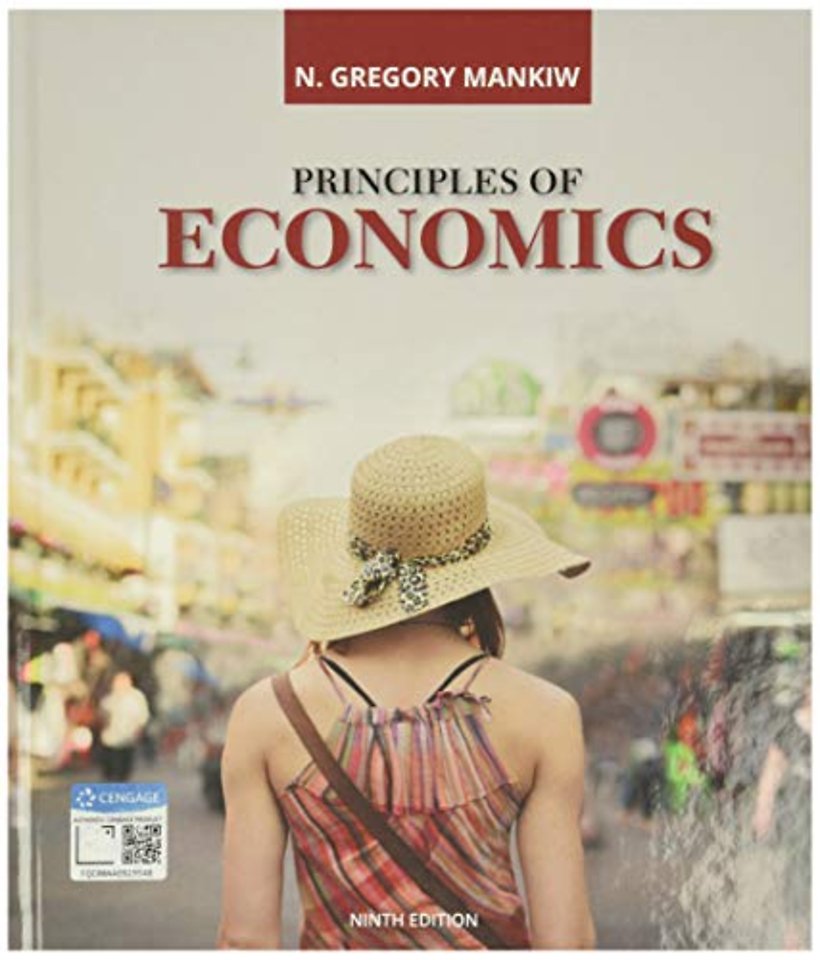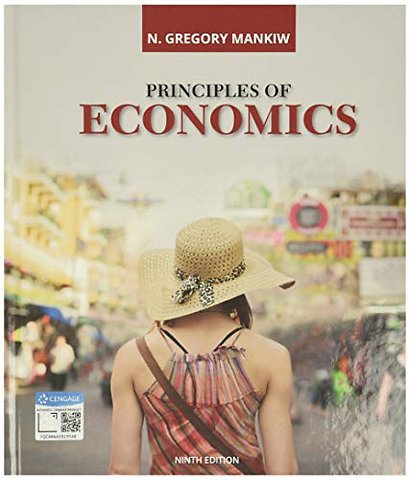



N. Gregory Mankiw is the Robert M. Beren Professor of Economics at Harvard University. For 14 years he taught EC10 Principles, the most popular course at Harvard. Dr. Mankiw studied economics at Princeton University and MIT. He is a prolific writer and a regular participant in academic and policy debates.
Meer over de auteursPrinciples of Economics
Gebonden Engels 2020 9e druk 9780357038314Samenvatting
Now you can master the principles of economics with the help of the most popular economics textbook trusted by students worldwide -- Mankiw’s PRINCIPLES OF ECONOMICS, 9E. Using a clear, inviting writing style, this book emphasizes only the material that helps you better understand the world and economy in which you live. You learn to become a more astute participant in today's economy with a strong understanding of both the potential and limits of economic policy. The latest relevant examples bring economic principles to life. Acclaimed author Gregory Mankiw explains, "I tried to put myself in the position of someone seeing economics for the first time. My goal is to emphasize the material that students should and do find interesting about the study of the economy." To help you further master the key principles of economics in this edition, powerful student-focused digital resources are available in the leading MindTap digital learning and homework solution.
Specificaties
Lezersrecensies
Inhoudsopgave
1. Ten Principles of Economics.
2. Thinking Like an Economist.
3. Interdependence and the Gains from Trade.
Part II: HOW MARKETS WORK.
4. The Market Forces of Supply and Demand.
5. Elasticity and Its Application.
6. Supply, Demand, and Government Policies.
Part III: MARKETS AND WELFARE.
7. Consumers, Producers, and the Efficiency of Markets.
8. Applications: The Costs of Taxation.
9. Application: International Trade.
Part IV: THE ECONOMICS OF THE PUBLIC SECTOR.
10. Externalities.
11. Public Goods and Common Resources.
12. The Design of the Tax System.
Part V: FIRM BEHAVIOR AND THE ORGANIZATION OF INDUSTRY.
13. The Costs of Production.
14. Firms in Competitive Markets.
15. Monopoly.
16. Monopolistic Competition.
17. Oligopoly.
Part VI: THE ECONOMICS OF THE LABOR MARKET.
18. The Markets for the Factors of Production.
19. Earnings and Discrimination.
20. Income Inequality and Poverty.
Part VII: TOPICS FOR FURTHER STUDY.
21. The Theory of Consumer Choice.
22. Frontiers in Microeconomics.
Part VIII: THE DATA OF MACROECONOMICS.
23. Measuring a Nation’s Income.
24. Measuring the Cost of Living.
Part IX: THE REAL ECONOMY IN THE LONG RUN.
25. Production and Growth.
26. Saving, Investment, and the Financial System.
27. Tools of Finance.
28. Unemployment and Its Natural Rate.
Part X: MONEY AND PRICES IN THE LONG RUN.
29. The Monetary System.
30. Money Growth and Inflation.
Part XI: THE MACROECONOMICS OF OPEN ECONOMICS.
31. Open-Economy Macroeconomics: Basic Concepts.
32. A Macroeconomic Theory of the Open Economy.
Part XII: SHORT-RUN ECONOMIC FLUCTUATIONS.
33. Aggregate Demand and Aggregate Supply.
34. The Influence of Monetary and Fiscal Policy on Aggregate Demand.
35. The Short-Run Tradeoff between Inflation and Unemployment.
Part XIII: FINAL THOUGHTS.
36. Six Debates over Macroeconomic Policy.
Anderen die dit boek kochten, kochten ook
Rubrieken
- advisering
- algemeen management
- coaching en trainen
- communicatie en media
- economie
- financieel management
- inkoop en logistiek
- internet en social media
- it-management / ict
- juridisch
- leiderschap
- marketing
- mens en maatschappij
- non-profit
- ondernemen
- organisatiekunde
- personal finance
- personeelsmanagement
- persoonlijke effectiviteit
- projectmanagement
- psychologie
- reclame en verkoop
- strategisch management
- verandermanagement
- werk en loopbaan





